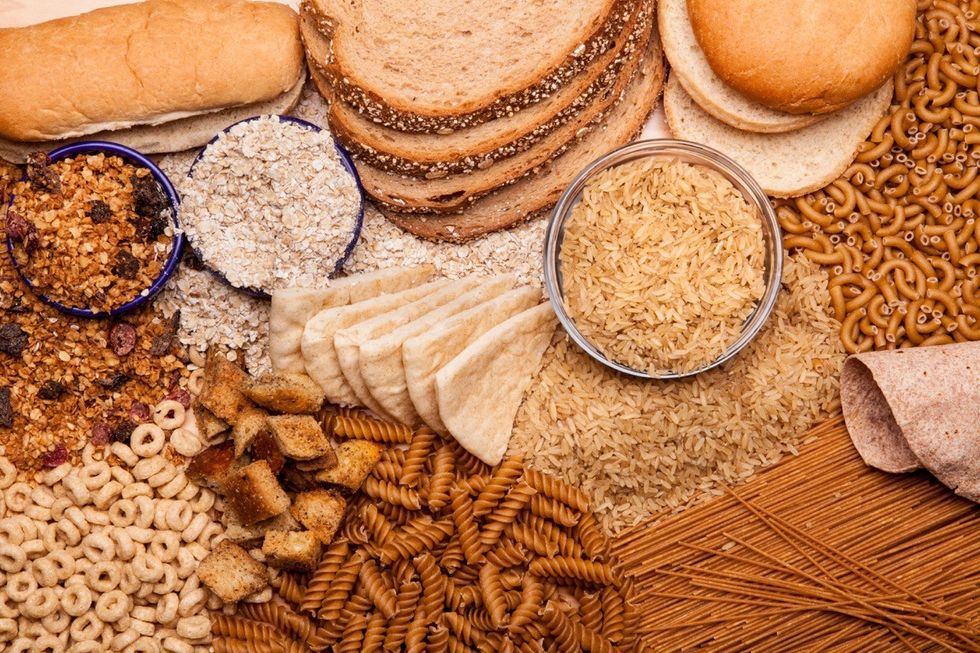Never Take Supplements With These 6 Foods and Drinks, Doctors Warn
Most people have a standard routine with their daily supplements, either taking them in the morning around breakfast or in the evening after dinner. A big part of this is that a lot of vitamins shouldn't be taken on an empty stomach. But did you know that you also need to be cognizant of what you're consuming when taking supplements?
"Not all supplements get along with what you’re eating or drinking," shares physicianRaj Dasgupta, MD, the chief medical advisor for Garage Gym Reviews. "In fact, some combinations can reduce how well your body absorbs key nutrients, or even create side effects." With that in mind, read on to discover the six foods and drinks that doctors say are the worst to mix with supplements.
RELATED: 12 Supplements You Should Never Take Together, According to Doctors.
1. Coffee and tea 2. Storing Brewed Coffee IncorrectlyShutterstock
2. Storing Brewed Coffee IncorrectlyShutterstock Bad news for all you morning supplement-takers: Dasgupta advises against taking your vitamins with coffee or tea.
"Caffeine and certain compounds in coffee and tea, like tannins and polyphenols, can interfere with the absorption of important minerals such as iron, calcium, and magnesium," he explains. "It's best to space caffeine and supplements out by at least an hour or two."
The other issue is that coffee can cause supplements to be digested too quickly for your body to absorb their nutrients.
"Coffee is a diuretic and can lead to the loss of water-soluble vitamins such as vitamin Bs and vitamin C when taken together," Wendi D. Jones, PharmD, MSPS, previously told Best Life.
2. Dairy 11. Probiotic-rich foodsShutterstock
11. Probiotic-rich foodsShutterstock With certain supplements, you may want to avoid taking them with your morning latte or bowl of yogurt.
"Calcium in dairy can interfere with the absorption of certain medications and minerals, particularly iron and some types of antibiotics," Dasgupta notes. "If you're taking a supplement that includes iron, avoid pairing it with milk, cheese, or yogurt."
RELATED: The No. 1 Supplement Causing Dangerous Liver Damage, Doctors Warn.
3. Too much fatty fish or liver 7 | Wild-caught salmonShutterstock
7 | Wild-caught salmonShutterstockIf you're taking a vitamin A supplement or a multivitamin that contains it, you'll need to be careful you don't overdo it on certain foods. As Verywell Health notes, animal-based foods such as beef or chicken liver, eggs, and fatty fish like salmon and herring are high in preformed vitamin A.
"Because vitamin A is fat soluble, the body stores excess amounts, primarily in the liver, and these levels can accumulate," explains the National Institutes of Health (NIH).
Therefore, if you're eating a diet that's already rich in preformed vitamin A and also taking supplements, it could lead to toxicity.
However, Verywell Health points out, "Plant-derived beta-carotene, a provitamin A found in carrots, is metabolized differently than preformed vitamin A. It is not found to be responsible for any of the serious symptoms of vitamin A toxicity."
4. High-fiber foods 6. Whole grainsShutterstock
6. Whole grainsShutterstock"Fiber is great for your gut, but not when it’s competing with your supplements," shares Dasgupta.
"High-fiber meals, especially those rich in bran or whole grains, can bind to minerals like zinc, calcium, and iron, reducing their absorption," he explains. "Try to take these supplements on a relatively empty stomach or a few hours apart from fiber-heavy meals."
RELATED: 6 Popular Supplements Can Damage Your Liver, New Research Shows.
5. Grapefruit 1. GrapefruitShutterstock
1. GrapefruitShutterstockYou've probably heard that grapefruit and grapefruit juice can have dangerous interactions with medications, notably statins, blood thinners, and some antihistamines. But according to Dasgupta, it can also "inhibit enzymes in the gut" that break down supplements.
"That means the active ingredients may stay in your system too long, increasing the risk of side effects, especially with calcium channel blockers, statins, and some immune supplements," he cautions. "Always check the label or ask your doctor if grapefruit is safe with your regimen."
6. Alcohol 4 | Red wineiStock
4 | Red wineiStockThinking about taking your supplements after enjoying a couple glasses of wine? It might be best to wait until the morning.
"Alcohol can reduce nutrient absorption and increase the risk of stomach irritation when taken with supplements like B vitamins, zinc, or fat-soluble vitamins (A, D, E, K)," Dasgupta explains. "It also strains the liver, which is where many supplements are metabolized."